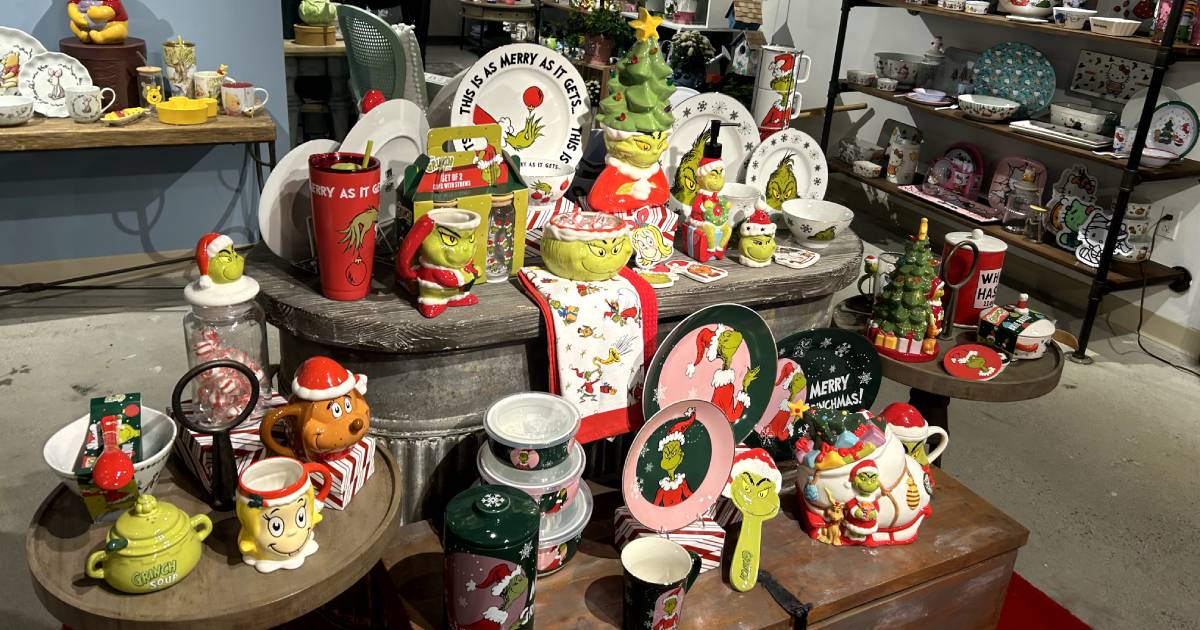A New Chapter is Being Written in Tabletop Licensing

By Mark Seavy
Tabletop suppliers are increasingly using storytelling to expand the business.
That much was evident at the New York Tabletop Show last week, with suppliers showing table settings designed specifically to appeal as retail displays and on social media. The trend has emerged as licensors conduct summits to nudge licensees toward coordinated collections.
For example, Vista Alegre shipped new Gudrun dinnerware with model Claudia Schiffer this month that features a seven-piece dinner set, water jug, and acorn-shaped vase, all of which marked Schiffer’s first venture into porcelain. Schiffer is also a fan of Vista supplier and luxury ceramics label Bordallo Pinheiro, which led to a coupling of the companies.
“If we can’t tell a story, how can anyone else?” said John Weeth, VP of Sales-West Coast for Vista Alegre. “Younger consumers are looking for, in the case of Schiffer, that she is in a picture with the product and then with it in her home. The whole story is why the collection exists and what the connection is with Schiffer. That authenticity is especially important now.”
Certified International introduced a dinnerware set (including salad and dinner plates, bowls, and glasses) featuring licensed designs from artist Tammy Repp that was shown as a full tableware display. And Lenox brought the Oneida brand it acquired in 2021 into dinner sets for the first time using melamine and bamboo materials. The collection is sold in packages though products are available separately, a break from the past when multi-piece settings couldn’t be sold individually.
Zrike Brands unveiled plans for Gordon Brothers-licensed Laura Ashley products, including dinner plates, travel mugs, and water bottles. Ashley’s licensed tableware was only available previously in the U.K. At the same time, Zrike ended agreements with the Smithsonian, PBS Kids, and the late children’s book author P.D Eastman (Go. Dog, Go!). And that was in addition to parting with Lolita Healy’s Lolita brand and artist RongRong DeVoe.
The focus on storytelling also mixes with the ongoing nostalgia trend that has spread across many licensing categories. Lenox, for example, relaunched the 24-piece Spice Village container collection, which ended a 20-year run in 2009. Interest in the line was rekindled via eBay and social media posts from influencers like Ashley Wilson (At Home with Ashley), who decorated her home based on the collection’s designs.
The Spice Village line, available next spring, will sell for $285, significantly less than the upwards of $700 that existing items command on eBay. Larger cannisters will also be available along a new hardwood rack for the spice containers.
The revival also spurred Lenox to bring back its licensed Peanuts figurines that are in addition to Snoopy-inspired seasonal items including those for Halloween, Christmas, and Valentine’s Day. The first collection will ship in January.
In fact, storytelling around the holidays was a major trend at the New York Tabletop Show, with seasonal ranges evolving to become a year-round business.
Zrike is fielding Christmas-related products based on Disney’s Mickey and Minnie Mouse and Universal Pictures’ Grinch characters, including mugs, candy dishes, and other items. Halloween items are now being shipped into retailers in June, while Christmas items start arriving in late August, and Valentine’s Day ranges emerge in January. Certified also used licensed designs from artists Susan Winget and Lisa Audit for Christmas-themed plates, platters, and glasses.
“Seasonal it now year-round. We could sell Christmas all the time,” said Jennifer DiBenedetti, VP of Marketing at Lenox. “Some companies are known by consumers as the go-to for the holidays for gathering and entertainment, regardless of the time or year.”
Despite excitement around these trends, retailers continue to order cautiously to avoid inventory buildup. Because, while a dock workers’ strike was recently avoided, a two- to three-week strike could have delayed shipments for as much as eight weeks, Weeth said.
“Specialty stores are doing well but, overall, the tabletop business is fairly flat with a lot of people crying poor as it is an election year and consumers are buying cautiously,” Weeth said. “Since Covid, this hasn’t been a growth industry, and it is not near where it was six years ago.”




